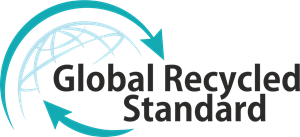Datini is a materials science company based in Karachi, Pakistan, dedicated to transforming global post-consumer textile waste into high-quality recycled cotton and wool fibers.

Incorporate True Circularity Into Fashion Through DFiber Products
DFiber is Datini’s cutting-edge recycled fiber solution that combines the best of wool and cotton recycling to deliver premium-quality fibers. Designed for innovation, DFiber retains the essential characteristics of traditional textiles: softness, strength, and warmth while significantly reducing environmental impact.
DWool
DWool is a high-quality, sustainable alternative that preserves the natural properties of wool while reducing waste, ensuring that every fiber contributes to a truly circular fashion economy.
DCotton
Revolutionizing cotton recycling, DCotton recycles discarded cotton into premium, reusable fibers, reducing environmental impact and supporting sustainable fashion.
Driving Global Change with Sustainable Wool Repurposing
Sustainability
Quality
Innovation
Performance
Versatility
Soft . Strong . Sustainable .
Soft . Strong . Sustainable .
Soft . Strong . Sustainable .
Soft . Strong . Sustainable .
Soft . Strong . Sustainable .
Be Eco-Conscious
While trendy and affordable, the fast fashion industry poses significant environmental challenges. From excessive carbon emissions to microplastics polluting oceans, its impact on the planet is undeniable. Water waste and energy-intensive production processes amplify the problem, solidifying fashion as a major global polluter.
Carbon Emissions
Fast fashion accounts for 10% of global carbon emissions, according to the BBC. At Datini, we combat this by recycling post-consumer wool and cotton, reducing the need for virgin fibers and lowering the carbon footprint.
Ocean Pollution
Synthetic fibers contribute to 35% of oceanic microplastics. By focusing on natural materials like recycled wool, we reduce dependency on synthetics, minimizing microplastic contamination.
Water Waste
Toxic dyes containing mercury, cadmium, and lead pollute waterways, causing severe health issues. At Datini, we use water free methods to recycle textile waste. This does not only saves water but also mitigates water toxicity.
Adverse Impact
The United Nations ranks fashion as the second most polluting industry globally. Datini addresses this by embracing a circular economy, diverting textile waste from landfills and conserving resources.
Fuel-Intensive Practices
Transforming plastics into textiles demands high energy and releases harmful chemicals like hydrogen chloride. Our approach eliminates reliance on petroleum, opting for alternatives that prioritize environmental well-being.
